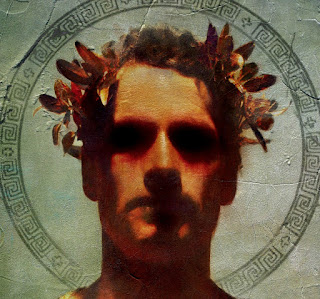The Blind King of Thebes: Heroic Morality
The
Garden of Eden may be the Origin of Morality for priests and pastors, but
philosophers and psychologists are perhaps more inclined to look at the story
of Oedipus. While Adam and Eve were given a clear moral choice that left no
ambiguity to the results of their actions, the situation with Oedipus is
more... complex.
The
story of Oedipus is perhaps best known via Freud’s “Oedipus Complex,” that is,
a subconscious desire to murder the father and marry the mother. But let’s go
back to Sophocles’ account of Oedipus to see what the story tells us about
morality.
 |
| "What? Is there something on my face?" |
The Story
Laius
and Jocasta, the king and queen of Thebes, were trying to have a child. They
consulted the Oracle at Delphi, who told them that if they have a son, he will
grow up to murder his father and marry his mother. This didn’t sit well with
the two, so when Jocasta gives birth to a son, they abandoned him the
wilderness.
Through
a series of wacky sitcom-esque events, the child was adopted by the king and
queen of Corinth, who named him “Oedipus.” One day, Oedipus was told that he
was adopted and so he went to the Oracle at Delphi to see if this was true. The
Oracle told him that he was going to murder his father and marry his mother.
Oedipus
was naturally not thrilled at this prospect and so he ran away from Corinth –
and towards Thebes.
On
the way, Oedipus got into a fight with an old man who refused to yield right of
way at a crossroads (perhaps the true Oedipus complex is road rage). Oedipus murdered the old man, and in a further series of wacky
events involving a Sphinx, ended up marrying the Queen of Thebes – Jocasta.
Years
later, the curse of the gods descended on Thebes and Oedipus went to the Oracle
to find out why. It turned out that the old man Oedipus killed was Laius, the
King of the Thebes and his father, while Jocasta was his mother. Oedipus poked
his own eyes out and Jocasta committed suicide, which I think we can all agree
are reasonable responses given the circumstances.
Next: [OE009] Handlug vs. Tat
I already knew about the context, but doing Antigone in school was fun. Analyzing and explaining the moral dilemmas through the lenses of a different era was quite fun. Trying to not confuse ancient Greek with modern Greek, not so much!
ReplyDeleteSpeaking of which, do you got any good books to recommend that do a good job on showcasing the morality of classical Greek or classical roman times?
ReplyDeleteSide note : The file link do not work.
ReplyDelete"Speaking of which, do you got any good books to recommend that do a good job on showcasing the morality of classical Greek or classical roman times?"
ReplyDeleteHmmm...
I'm mostly going off of Hegel's "Phenomenology of Spirit" and Alexandre Kojève’s "Introduction to the Reading of Hegel." I'm not as well versed in primary Greek/Roman moral philosophy documents, but Greek/Roman literature seems like a good place to get the basics.
I take it you've already read the Oedipus Trilogy, but the Iliad and Odyssey are also great examples of "Heroic Morality" in action, particularly Achilles' speeches in books IX, XVIII, and, well, just everything Achilles from the Iliad.
Roman morality is slightly different - you start to see more of an individuation of consciousness, more of an awareness of the role of the individual in the universe. "The Golden Ass" is a great example of the moral journey of an average Joe, as opposed to the god-like Achilles and Oedipus.
Interesting. Time for some reading!
DeletePS. You really should fix the file link(they pretty much reveal you pc username which i am sure wasn't intended).
Thinking of showing this to my class and offering extra credit to correct all the errors. Please, please proofread, people!
ReplyDelete